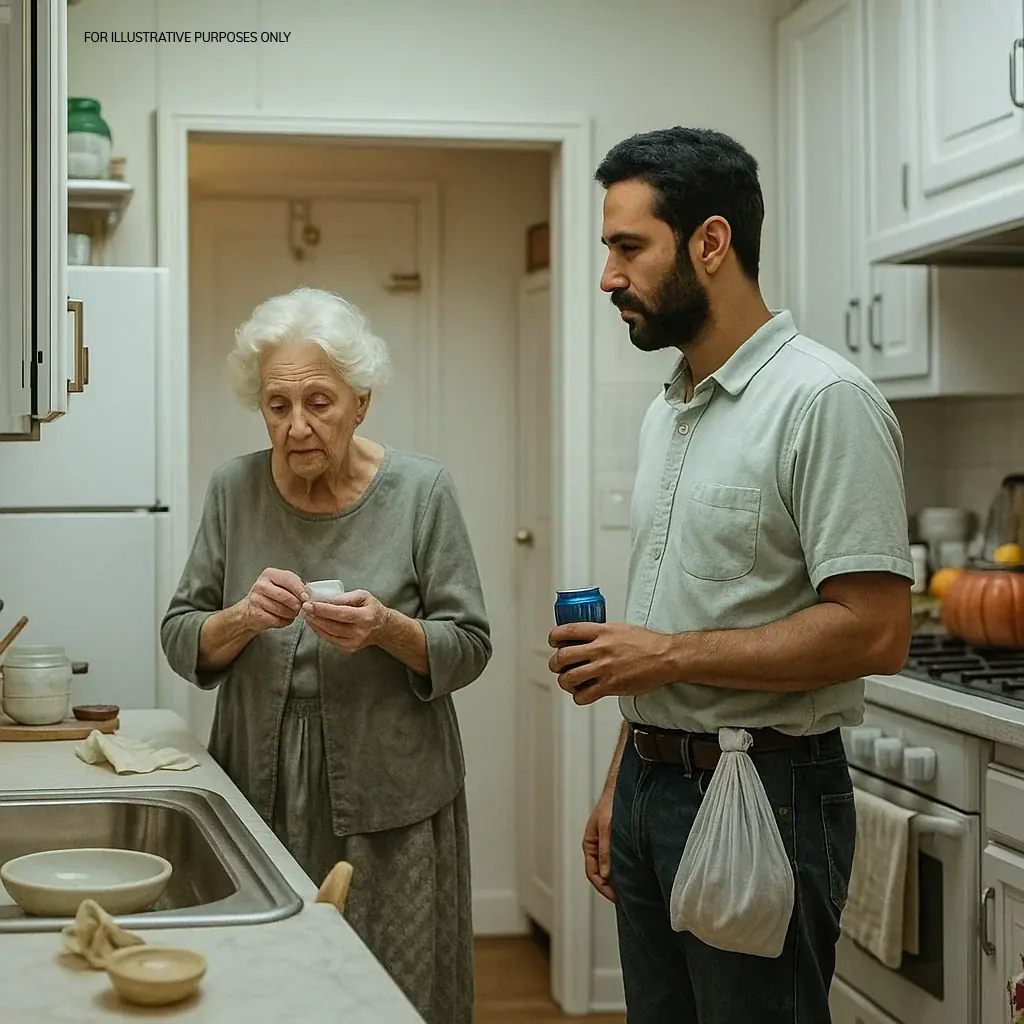A father navigates the conflict between enforcing bedtime rules and keeping his daughter included in family activities. But when his wife disagrees with his decision, things get complicated.

The Situation
It was supposed to be a relaxing movie night—just me, my wife, and our two older kids. Our youngest, a bright-eyed nine-year-old, had already been tucked into bed at 9:30 PM, as per our summer schedule. We had decided to enjoy a classic horror film—Alien—something we all looked forward to watching, without interruption or fear of nightmares.
But the peace was shattered when our youngest daughter came downstairs, her little feet thumping on the wooden steps. Her wide eyes looked up at us, full of curiosity. “What movie are you watching?” she asked, her tone innocent but full of determination.
I glanced at my wife. This wasn’t the first time our daughter had tried to push boundaries, especially when it came to watching movies that were too mature for her. We had tried to set limits—limits that, frankly, she did not like.
I looked back at my daughter. “You should be in bed,” I said gently but firmly. “It’s past your bedtime.”
She pouted, her small face scrunching in protest. “I heard you were going to watch a movie! Can I watch too?”
I sighed. It was always the same. She would beg to watch, saying she could handle it, but we both knew she couldn't. She’d barely made it through Scooby-Doo without getting scared, let alone a real horror movie like Alien.
“Sweetie, it’s too scary for you,” I explained.
“But I’m big enough! I can handle it,” she insisted, stepping forward, her eyes wide with determination.
I tried to soften my tone. “No, it’s not about being big enough. It’s about the movie being too scary. You’re too little for it.”
Her face fell, and a tantrum began to build. She crossed her arms and stomped her feet. “No! I want to watch with you! It’s not fair!” she cried, her voice rising in frustration.
At this point, the situation was escalating quickly. I needed to assert my boundaries. I couldn’t allow her to dictate when she stayed up past her bedtime, especially for something she wasn’t emotionally ready for.
I walked over, gently but firmly picking her up. “No, sweetie. It’s time for you to go back to bed,” I said as I carried her back upstairs. She screamed, kicking her legs. “No, Daddy! I want to watch the movie!” she cried, her voice trembling.
Once I had her back in bed, I knelt beside her, trying to calm her down. “This is not family movie time,” I explained. “This is a time for people who are big enough for scary movies. You’re too little for scary movies right now.”
She shook her head, tears streaming down her face. “No, I’m big enough! I can watch with you!”
Her words stung, and I knew she was frustrated and upset, but I had to stand my ground. “No, you’re too little, and it’s past your bedtime. If you get out of bed again, you’re going to be in trouble,” I said, raising my voice slightly.
I kissed her goodnight, trying not to feel guilty. She sobbed softly as I closed the door behind me. I walked downstairs, feeling a pit in my stomach, but also relief—after all, I had stuck to the rules.
As we settled in to watch the movie, I couldn’t help but hear the faint sounds of her tantrum through the walls. But as time passed, it stopped, and we continued the movie, trying to ignore the tension in the air.
The Next Day: The Conflict Unfolds
The next morning, I expected everything to be fine. It was a normal day—breakfast, the kids getting ready for school—but then my wife, Emily, came up to me with a stern look on her face. My stomach sank. I had a feeling I knew where this was going.
“Can we talk?” Emily asked, her voice calm but firm.
“Sure,” I replied, feeling a knot in my stomach. “What’s up?”
“You know, I’m upset about what happened last night,” she said, crossing her arms. “The way you handled it—was it really necessary?”
I frowned, confused. “What do you mean? I told her it was too scary, and she needed to go to bed. She was being unreasonable.”
Emily shook her head, her expression softening. “I get that you want to stick to the rules, but did you have to be so harsh about it? She just wanted to be included. She looks up to you so much, and you told her she couldn’t be part of the family movie night just because she’s younger.”
I stood there, trying to process her words. “She was throwing a tantrum! She was upset and wouldn’t listen. I had to be firm with her.”
“I know, but she’s only nine,” Emily said. “She doesn’t understand why she can’t do what the rest of us are doing. She just wanted to be close to us, to be a part of something. And you made her feel excluded.”
I didn’t know how to respond. Emily had a point. I didn’t want to make our daughter feel like an outsider, but I also didn’t want her to think it was okay to ignore boundaries. It was a tricky situation, and I realized maybe I hadn’t handled it the best way.
The Turning Point
We spent the next few days talking about what happened, and I began to see things from Emily’s perspective. Maybe I was being too rigid, too focused on rules and not enough on the emotional side of things. Yes, our daughter needed to learn limits, but she also needed to feel like she belonged, like she was a part of our family traditions.
I decided I needed to make things right with her. I couldn’t just let her think I didn’t care about her feelings.
The following weekend, I had an idea. I went into her room early one morning before she woke up and set up a special movie screening just for her. I picked out a movie I knew she’d enjoy—something fun and lighthearted—and I invited her to watch it with me, just the two of us.
When she came into the living room, I smiled and said, “I’m sorry about last time. I should’ve handled it better. You are part of this family, and you should’ve been included. So, how about we have a movie night just for you and me?”
Her face lit up, and she threw her arms around me. “Thank you, Daddy!”
The Resolution
We spent the afternoon watching her favorite movie, laughing together and enjoying each other’s company. It wasn’t a grand gesture, but it meant the world to her. And to me.
That night, I talked to Emily about what happened. “I get it now,” I told her. “It wasn’t just about the rules, it was about making sure our daughter knows she’s loved and included. I’ll work on being more mindful of her feelings, and not just sticking to rules for the sake of it.”
Emily smiled and kissed me. “I’m glad you’re getting it. We’re in this together, right?”
“Right,” I said, holding her close. “Together.”
Epilogue
A few weeks later, we were sitting on the couch as a family, all of us watching a movie together—no tantrums, no tension. Just us. And it felt good. I had learned something valuable that day: being a good parent isn’t just about enforcing rules—it’s about making sure our kids feel understood, loved, and included.
And most importantly, I had learned that love is about finding the balance between rules and connection.
The End



























